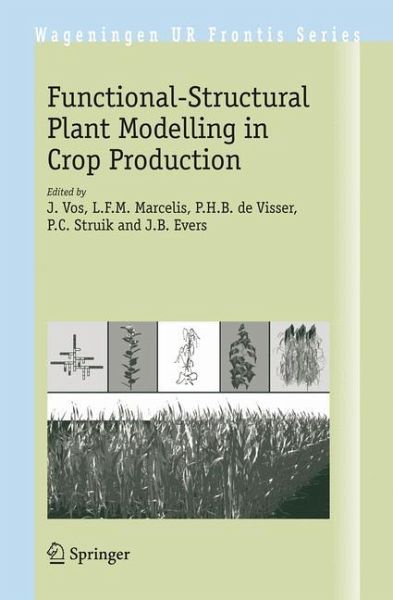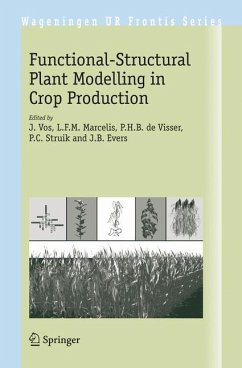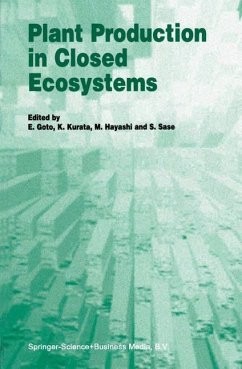
Functional-Structural Plant Modelling in Crop Production
Versandkostenfrei!
Versandfertig in 6-10 Tagen
151,99 €
inkl. MwSt.

PAYBACK Punkte
76 °P sammeln!
Functional-structural plant models (FSPMs) describe in quantitative terms the development over time of the three-dimensional (3D) structure of plants as governed by physiological processes and affected by environmental factors. FSPMs are particularly suited to analyse problems in which the spatial structure of the plant or its canopy is an essential factor to explain, e.g., plant competition (intra-plant, inter-plant, inter-species) and the effects of plant configuration and plant manipulation (e.g., pruning and harvesting) on yield and produce quality.This book describes the philosophy of fun...
Functional-structural plant models (FSPMs) describe in quantitative terms the development over time of the three-dimensional (3D) structure of plants as governed by physiological processes and affected by environmental factors. FSPMs are particularly suited to analyse problems in which the spatial structure of the plant or its canopy is an essential factor to explain, e.g., plant competition (intra-plant, inter-plant, inter-species) and the effects of plant configuration and plant manipulation (e.g., pruning and harvesting) on yield and produce quality.
This book describes the philosophy of functional-structural plant modelling and several tools for making FSPMs; it outlines methods for measuring essential parameters, including those pertaining to plant structure. As FSPMs offer new opportunities to model sink-source interactions, the physiological theory and modelling approaches regarding partitioning of carbon are given specific attention. Examples of application ofFSPMs include wheat modelling in the context of remote sensing and the analysis of predator-prey insect interactions on glasshouse plants.
The book will be useful for scientists and advanced students interested in innovative approaches in plant and crop modelling.
This book describes the philosophy of functional-structural plant modelling and several tools for making FSPMs; it outlines methods for measuring essential parameters, including those pertaining to plant structure. As FSPMs offer new opportunities to model sink-source interactions, the physiological theory and modelling approaches regarding partitioning of carbon are given specific attention. Examples of application ofFSPMs include wheat modelling in the context of remote sensing and the analysis of predator-prey insect interactions on glasshouse plants.
The book will be useful for scientists and advanced students interested in innovative approaches in plant and crop modelling.












